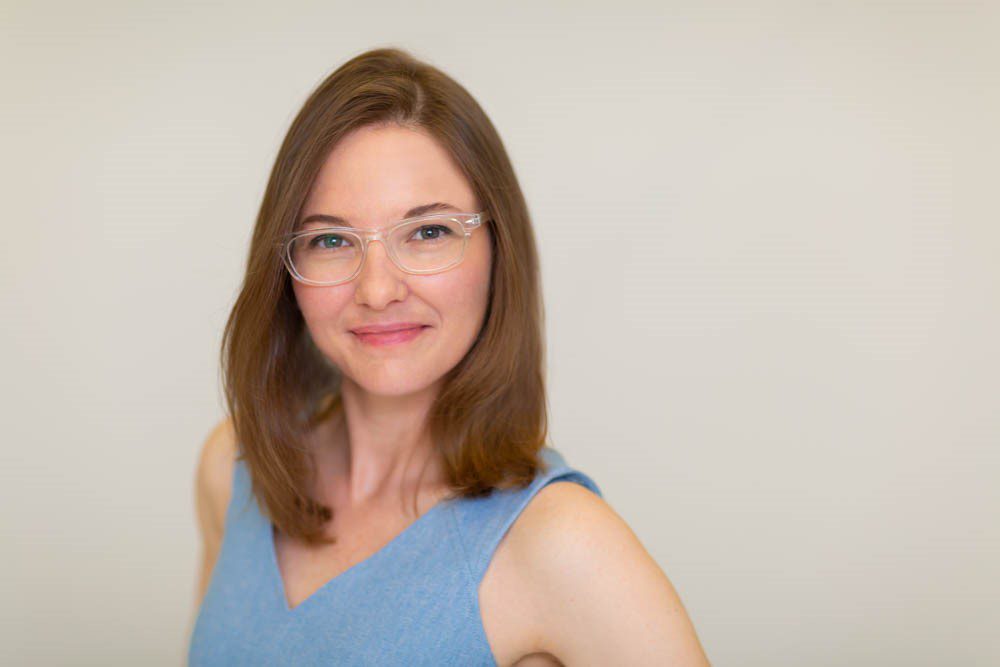Clinical Tax Law Professor Amy Spivey '13 Joins UC Law SF Faculty

Professor Amy Spivey ’13 is director of the Low Income Taxpayer Clinic at UC Law SF.
For the last three years, Professor Amy Spivey ’13 has helped students gain hands-on practice assisting single parents, seniors, non-native English speakers, and others in her role as director of the Low-Income Taxpayer Clinic at UC Law SF.
This year, Spivey joins the law school’s full-time faculty as an Associate Clinical Professor, after having served as a Visiting Assistant Professor since 2020.
“I love helping students find their confidence, grow, and become self-assured that they possess the skills to practice law,” she said.
Originally from Central Florida, Spivey earned a degree in classical studies from the University of Florida and later worked for a nonprofit helping HIV patients obtain life-saving medication before moving across the country to study law in San Francisco.
In her first year as a UC Law SF student, she participated in the Volunteer Income Tax Assistance (VITA) Program, in which students prepare tax filings for low-income individuals. She now coordinates that program for the law school. As a law student, Spivey said her experiences with VITA and a federal income tax class made her realize that she found tax law a fascinating and intellectually challenging field.
After graduating from law school in 2013, she spent the next few years working in private practice resolving tax issues for small businesses and high-net-worth individuals. She then pivoted to more social-justice-focused work, landing a job in 2017 as supervising attorney of the Low-Income Taxpayer Clinic offered by the Justice and Diversity Center of the San Francisco Bar Association.
In early 2020, she accepted an invitation to help launch a new Low-Income Taxpayer Clinic at UC Law SF, made possible thanks to a grant secured by Center on Tax Law Co-Director Manoj Viswanathan. Launched in Fall 2020, the clinic allows students to act as primary lawyers on cases under Spivey’s supervision.
“It gives students an opportunity to feel what it’s like to be a lawyer,” Spivey said. “We teach them transferrable lawyering skills, including interviewing, counseling, negotiation, fact development, and narrative storytelling in their legal writing.”
The clinic includes seminar and fieldwork components. It explores social-justice aspects of the tax code and requires students to complete a non-client-focused project, such as filing an amicus brief in an important tax case, submitting comments on proposed IRS policy changes, or educating the community about tax issues that affect low-income individuals. The students also help incarcerated people obtain pandemic-era stimulus checks, many of which have a deadline for receiving payments coming in April 2024.
“Without the clinic here, many clients would lose out on refunds that they desperately need to make ends meet or owe taxes they could not afford to pay,” Spivey said.
Spivey and Viswanathan recently wrote a scholarly article on starting and operating an academic low-income taxpayer clinic. It was published in The Tax Lawyer in Fall 2022. She also files amicus briefs, which can affect the outcome in important tax law cases, and submits comments on proposed changes to IRS forms and policies. She is currently drafting comments on proposed reforms to the e-filing system that could benefit low-income taxpayers.
Additionally, Spivey is active in the professional tax law community. She has served as Vice Chair of the American Bar Association‘s Section of Taxation’s Pro Bono & Tax Clinics Committee and was recently elected Chair of the California Lawyers Association’s Taxation Section, for the 2024-2025 term.
“We’re lucky to have Amy leading our Low-Income Taxpayer Clinic,” Viswanathan said. “Her wealth of experience, commitment to serving clients, dedication in the classroom, and familiarity with our institution has made her a wonderful addition to our faculty.”